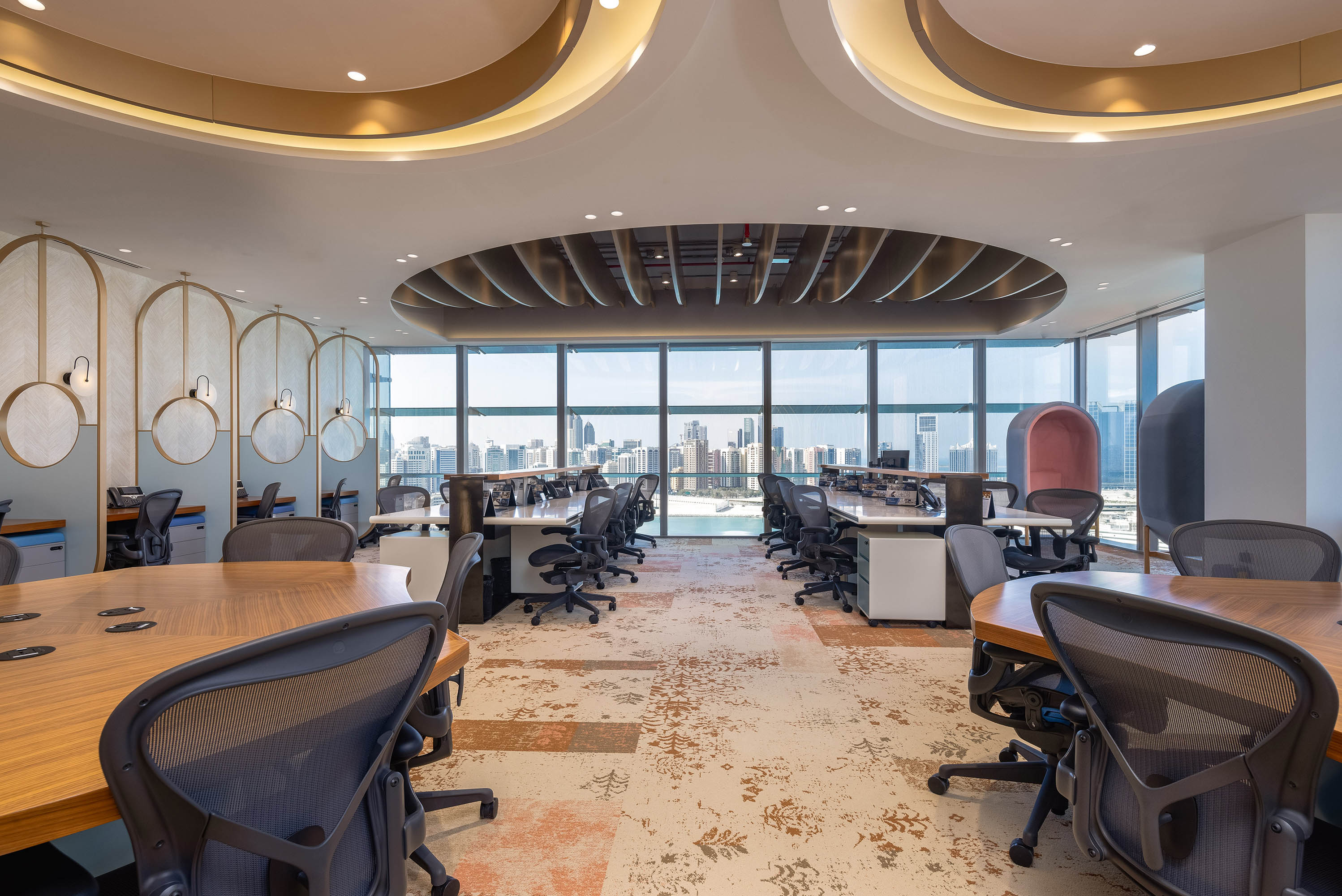Benefits of Using Flexible Workspace Solutions for Businesses
Published Date:
Feb 9, 2024
The outbreak of the pandemic in 2019 has brought several permanent changes to the world, especially in terms of redefining the concept of a productive workplace. Some of them have changed our viewpoints in traditional work settings, making people welcome change.
One such major transformation concerning human capital management and HR, in general, is the adaptation towards flexible working arrangements. Today, in 2024, both employers and employees have shown tremendous favour towards flexible working spaces.
Especially flexible workspace arrangements like coworking spaces, virtual workspaces, and serviced offices, alongside meeting and event spaces for rent, have emerged as reliable options that have seen consistent demand over the last five years, especially after the COVID-19 pandemic.
If you are an employer or company trying to assess the benefits of flexible working office space in 2024 for your HCM plan, this guide is just for you.
Increased Productivity
Giving employees the ultimate freedom to decide how they would want to work increases their level of engagement, resulting in greater productivity. This adaptability is one of the main benefits of flexible working office space.
Employers that are quite reluctant to execute this completely within their Human capital management strategies can focus on a hybrid model that allows some degree of flexible working.
Similarly, employees can also let teams choose the best working model for a given project. For example, teams can get together and work in a co-working space rather than being confused by traditional workspaces. It can give them the change of environment and atmosphere required to boost creativity.
It is also best to acknowledge that not everyone thrives in a group culture or collective environment. Some, especially creative professionals, need that private space to let their thoughts flow. This is especially true for introverts who prefer working by themselves. Flexible workspace arrangements can be beneficial even in this regard.
Cost Savings
Most trending flexible workspace options in 2024, like coworking, serviced offices, and virtual workspaces, don�t tie you to a long-term lease. This cost savings is one of the main benefits of flexible working office space. The cost related to maintenance and support services can also be reduced to a great extent in most flexible workspace settings.
Having this financial flexibility allows employers and the company in general to allocate funds to other key areas of business growth, innovation, technology, and the development of human capital management.
With time, the savings accumulated through flexible workspace arrangements can make organisations more financially resilient and help with risk management for startups.
Enhanced Employee Satisfaction
Having the choice to decide how the employees in your company can work is one of the most attractive benefits of a flexible working office space. When employees have greater autonomy and control over their work schedule, as long as they get their work done, it gives them the privilege to achieve a healthy work-life balance.
It reduces stress, gives room for creativity, and, most importantly, contributes to better quality of work. Organisations are also less likely to experience inefficiencies resulting from errors and the need for back-and-forth revisions impacting overall productivity.
When employees feel their needs are met and they have more democracy in their work setting, they are more likely to be engaged and motivated, leading to increased loyalty and low turnover rates.
Talent Attraction
Although often overlooked, the attraction and retention of talent is one of the influential benefits of flexible working office space. Nowadays, among the many factors potential talent sees or research before deciding to join a company or even apply to a specific position is the degree of flexibility the company allows.
It would not be wrong to say that some candidates prefer a flexible working environment over a higher salary or compensation when choosing a company to work with. When the HR team takes the initiative to facilitate such flexible workspace culture, it is easier for a company to appear more attractive to a broader range of candidates and create a more inclusive and attractive workplace.
To a certain extent, it also can support good word-of-mouth through current employees, making it easier to attract the right set of candidates for a given position within the company.
Scalability
Among the key benefits of flexible working office space in 2024 is the ability to scale according to the growth of your business and current needs. Unlike traditional spaces, with flexible workspaces, companies will not be tied to long leases, giving them enough freedom to decide the flow of funds and the ability to make easy decisions about upsizing or downsizing to suit the latest human capital management or HR strategies.
Having the ability to scale as and when needed takes a lot of stress from basing decisions according to an office contract or lease. It gives the agility needed to respond to market changes and operational demands, ensuring that the organization can remain efficient and effective at all times.
Crisis Resilience
Risk management and crisis resilience are key for organisations to sustain hard and challenging times. Any business analysing the benefits of flexible working office space in 2024 should definitely take into account its adaptability during unforeseen events such as pandemics or natural disasters.
This work setting that grew in popularity post-pandemic allows HR teams to provide their employees with remote work options and other adaptable office configurations, ensuring business continuity and support for effective human capital management during challenging times.
Properly managing a flexible work setting goes a long way in helping companies maintain operations and protect their workforce while reflecting a strong commitment to employee well-being and overall operational stability.
Can Be Tailored To Needs
Flexible workspaces can be tailored to the needs of companies seeking particular advantages, such as location-specific advantages, such as access to a large outdoor space for brainstorming and collaboration in the open air, or industry-specific advantages, such as catering to law firms, businesses in the healthcare sector, cannabis startups, or new music producers.
This year, independent, flexible workspaces can differentiate themselves from one another by placing a strong emphasis on niches.
A Great Solution For The Gig Economy & Remote Workers
Not everyone can successfully work from home. Some professionals from the gig economy can find it difficult to focus on their work because of distractions from home, while others suffer from the loneliness that comes with working alone at home.
These difficulties apply to remote workers as well. Some of these employees also claim to feel cut off from the workplace culture because the shift to a remote workstyle has mostly eliminated day-to-day interactions among coworkers.
Then, there are the additional problems that arise from working from home, such as perhaps unstable internet connectivity, inadequate workspace, or the unavoidable merging of personal and professional obligations. The required distinction between the personal and the professional gradually disappears, increasing the danger of burnout.
Takeaway
Now that you are aware of the benefits of a flexible working office in 2024, it is important for you to do your homework and choose the best options.
For this, you will have to assess your need if you're a freelancer or your HR or human capital management strategies if you're a company, and then shortlist the best options according to your budget.
Make sure to check the facilities and amenities available, maintenance, support services, admin, or even Kitchen and pantry, depending on the type of flexible working space required. Lastly remember that the type of flexible workspace arrangement you would need as a professional from the gig economy or self-employed person will be different to that of what an employer would need for their employees. Coworking, serviced offices, virtual offices, meeting rooms for rent, and event spaces for hire are the standard options for flexible workspace options. Try to understand the features of each of these types and then narrow down your choices to select the best option for your needs.

